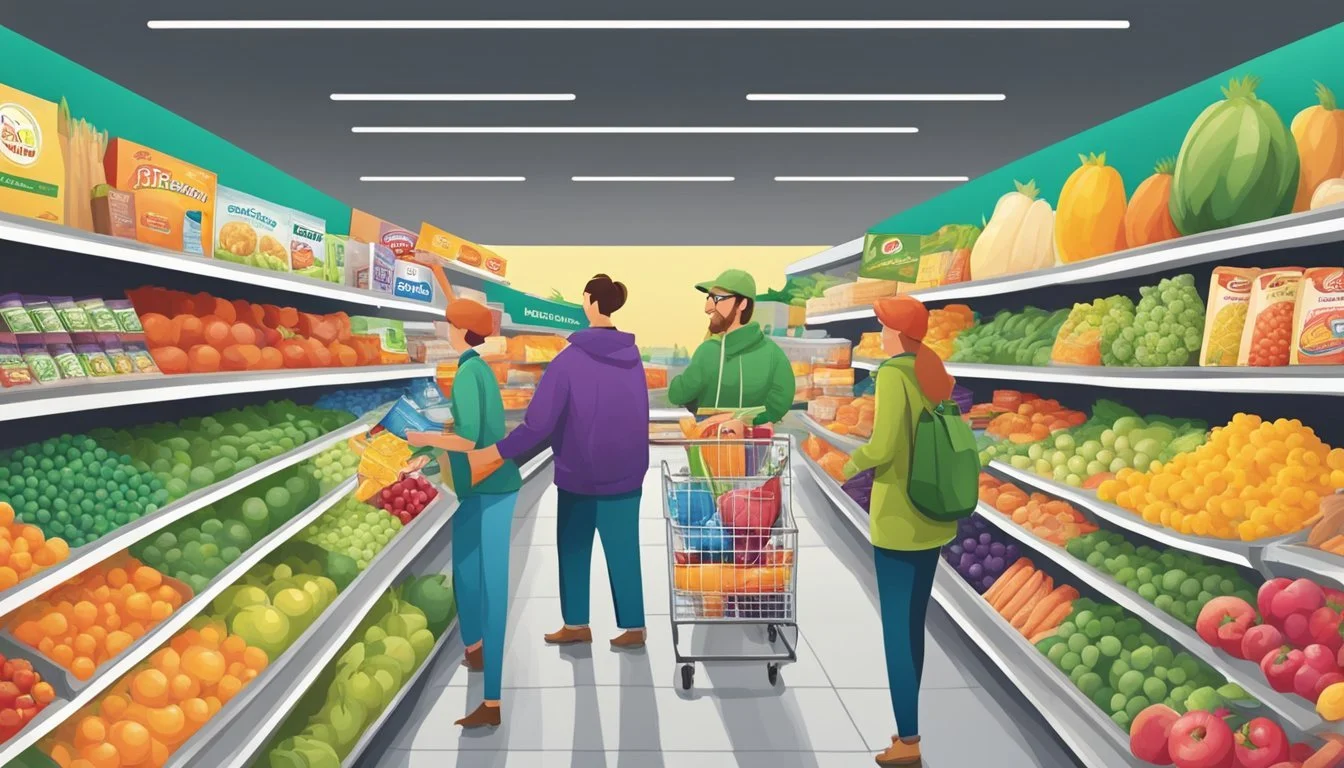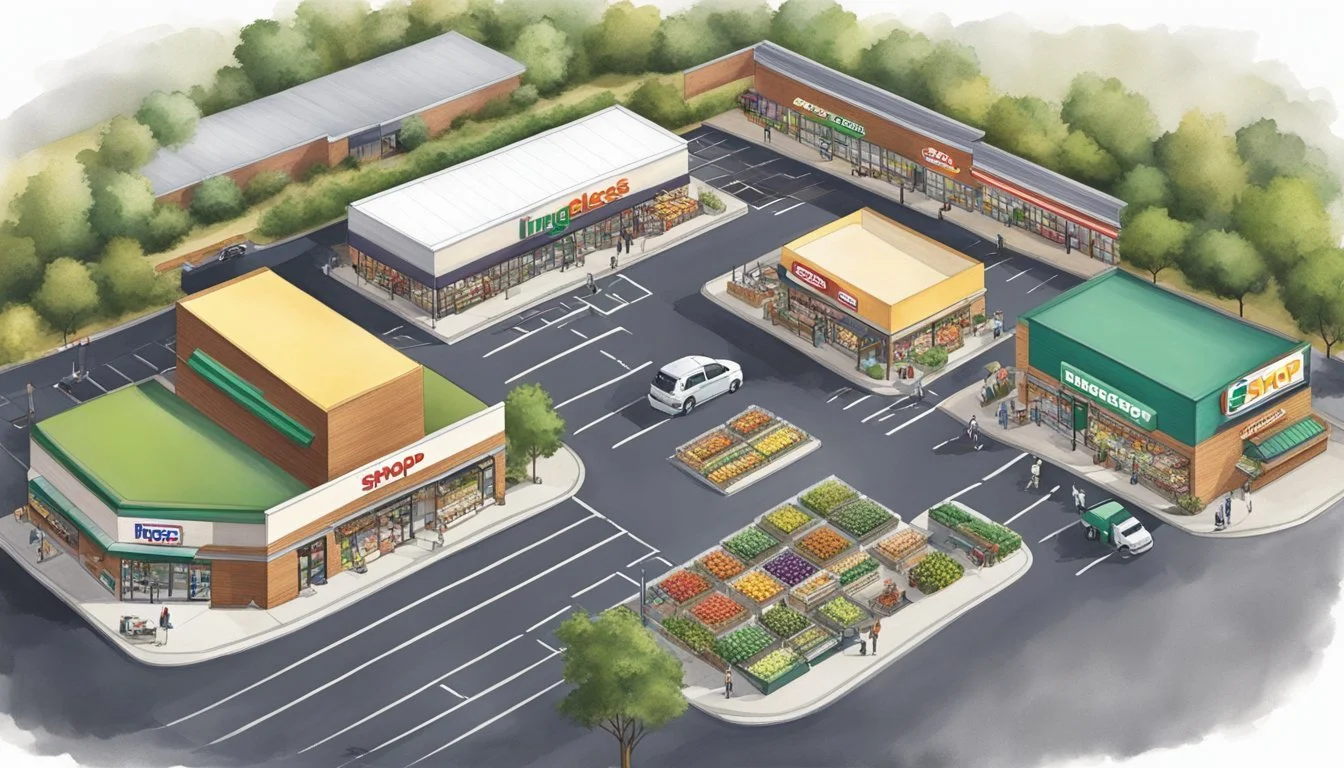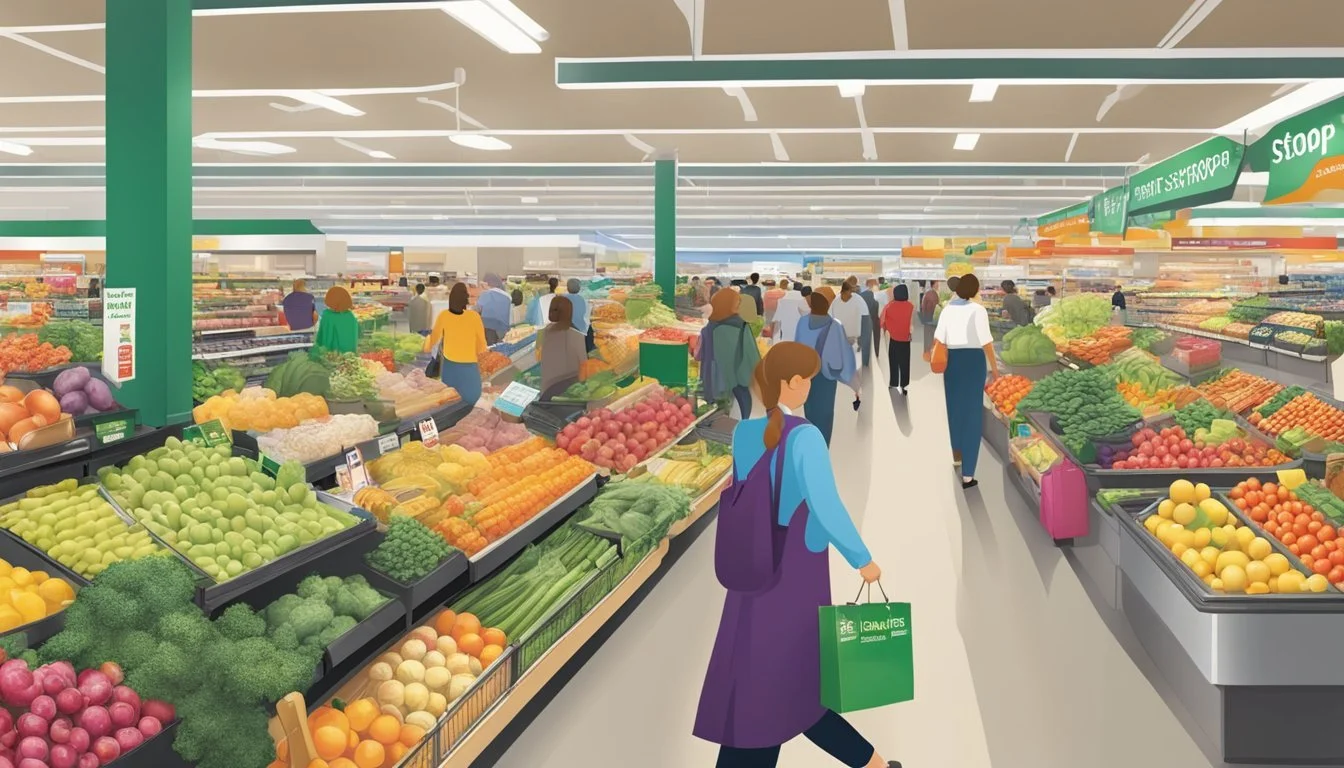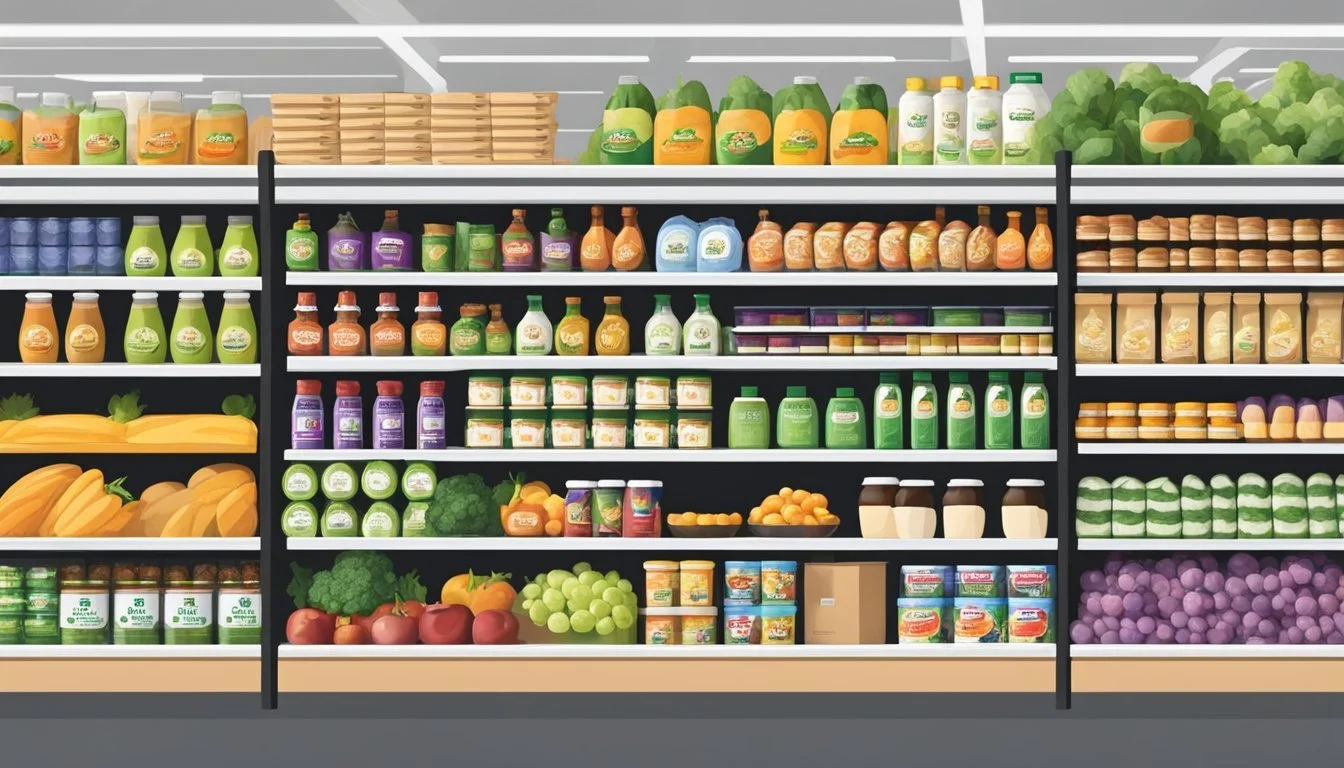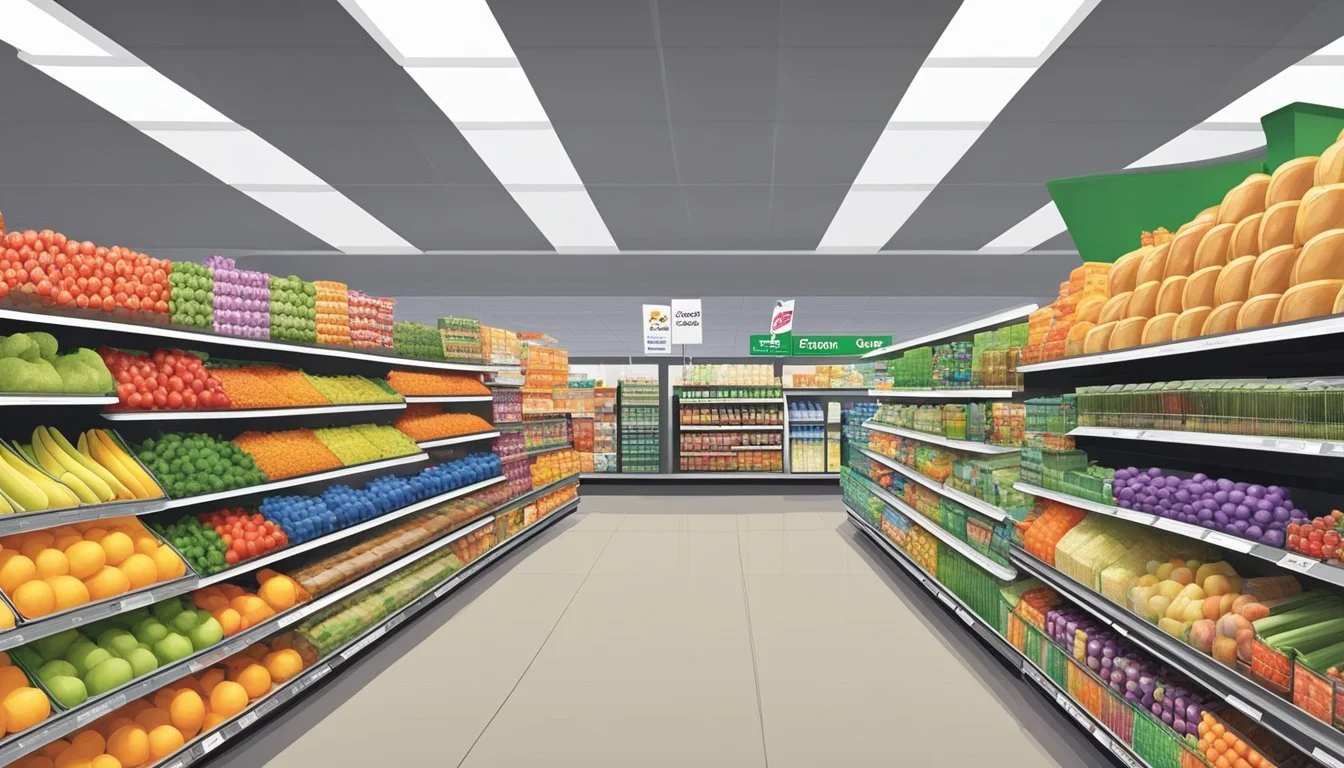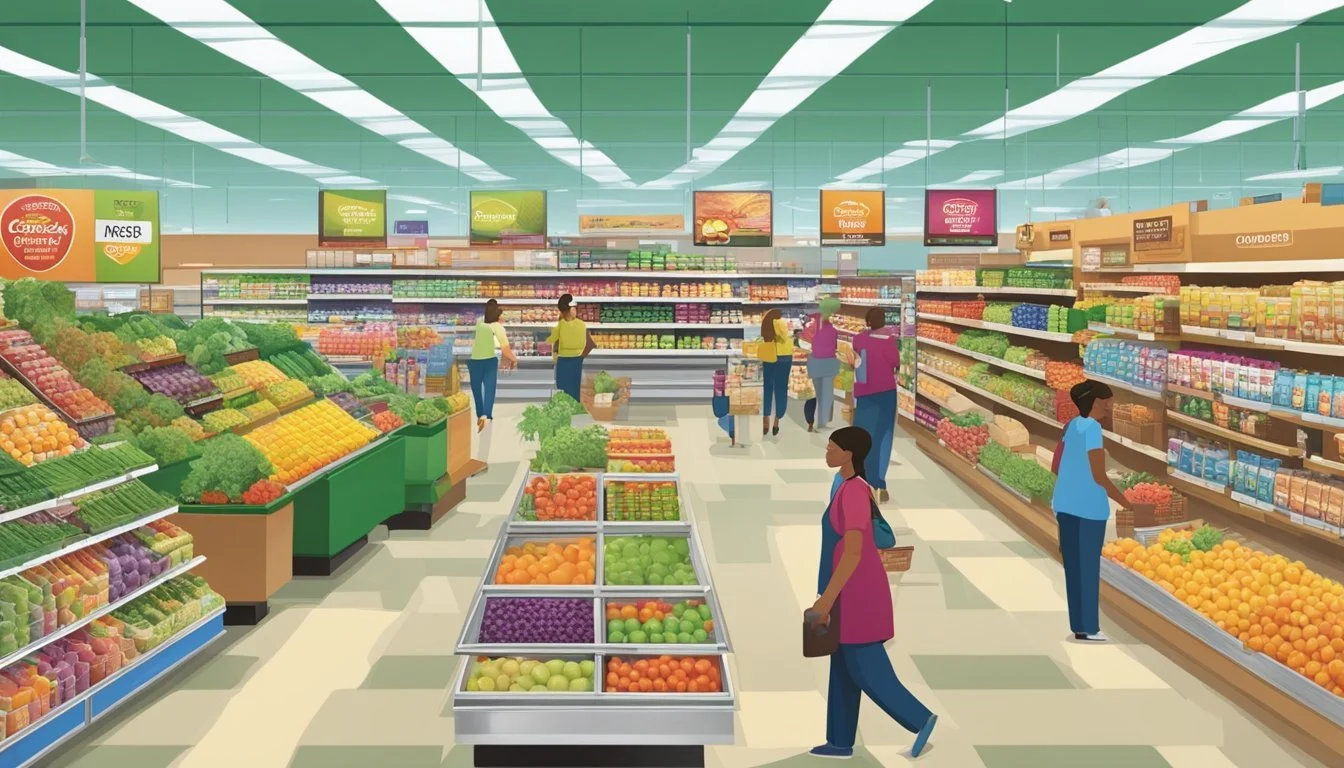Ingles Markets vs Stop & Shop
Comparing Prices, Selection, and Service
Grocery shopping can be a significant part of household budgets, making the choice of supermarket crucial for many consumers. Ingles Markets and Stop & Shop are two well-known grocery chains serving different regions of the United States. Both offer a wide range of products, but they differ in pricing, selection, and overall shopping experience.
When comparing Ingles Markets and Stop & Shop, Ingles Markets generally offers lower prices and a more localized shopping experience, while Stop & Shop provides a wider selection of products and a more upscale atmosphere. Ingles Markets, primarily serving the Southeastern United States, has built a reputation for competitive pricing and a focus on regional products. Stop & Shop, with locations throughout the Northeast, tends to have higher prices but offers a broader range of specialty and gourmet items.
Customer satisfaction varies between the two chains. Ingles Markets has received mixed reviews, with an average rating of 3.3 out of 5 based on customer feedback. Stop & Shop, while not always the cheapest option, has garnered praise for its product variety and store layout. The choice between these two grocery chains often comes down to individual preferences, budget constraints, and specific shopping needs.
Overview of Ingles Markets and Stop & Shop
Ingles Markets and Stop & Shop are two prominent grocery store chains operating in the United States. Ingles Markets focuses primarily on the southeastern region, with over 200 stores across six states.
Stop & Shop, on the other hand, serves customers along the east coast, particularly in the northeastern states. Both retailers offer a wide range of products, including fresh produce, meats, dairy, and household essentials.
Ingles Markets has built a reputation for competitive pricing and strong profit margins. The company has shown consistent growth in recent years, with net income rising steadily since 2017.
Stop & Shop, while a larger chain, has faced some challenges in customer satisfaction. A survey indicated that only 27% of customers rated Stop & Shop as "superior" overall.
Both supermarkets strive to meet the diverse needs of their communities. They offer loyalty programs, weekly deals, and digital coupons to attract and retain customers in the competitive grocery industry.
Ingles Markets and Stop & Shop continue to adapt to changing consumer preferences, incorporating more organic and locally-sourced options into their product lineups. As established players in the supermarket sector, they play significant roles in their respective regional markets.
Store Locations and Accessibility
Ingles Markets and Stop & Shop have distinct geographical footprints and strategies for store placement. Their locations and accessibility significantly impact customer convenience and shopping experiences.
Geographical Reach and Expansion
Ingles Markets operates primarily in the southeastern United States, with a strong presence in states like North Carolina, South Carolina, Georgia, Tennessee, Alabama, and Virginia. The company has 197 supermarkets across these regions. Ingles focuses on serving communities in both urban and rural areas, often establishing stores in smaller towns and suburbs.
Stop & Shop, on the other hand, concentrates its operations in the northeastern United States. The chain has a substantial presence in states such as Massachusetts, Connecticut, Rhode Island, New York, and New Jersey. Stop & Shop recently announced plans to close 32 underperforming stores, indicating a strategic realignment of its geographical footprint.
Ease of Accessibility
Ingles Markets prioritizes customer convenience by strategically locating stores in easily accessible areas. Many Ingles stores are situated along major roads and in shopping centers, making them readily available to local residents. The company's website features a store locator tool, allowing customers to find nearby locations by entering their zip code or selecting their city and state.
Stop & Shop also emphasizes accessibility, with many stores located in densely populated urban and suburban areas. The chain typically positions its outlets in high-traffic locations, such as shopping plazas and standalone buildings with ample parking. This approach aims to maximize visibility and provide easy access for customers in busy northeastern communities.
Comparing Product Range and Quality
Ingles Markets and Stop & Shop offer diverse product selections, but their offerings differ in key areas. Both chains strive to meet customer needs through varied produce, meats, organic options, and store brands.
Produce and Meat Selections
Ingles Markets prides itself on locally sourced produce, often partnering with regional farmers to provide fresh fruits and vegetables. Their meat department features a wide range of cuts, including grass-fed and organic options.
Stop & Shop's produce section is comprehensive, with a mix of conventional and organic items. They emphasize seasonal offerings and import specialty produce to cater to diverse tastes.
Both stores maintain in-house butchers, ensuring custom cuts are available. Stop & Shop has invested in expanding its seafood selection in recent years, offering a broader range of fresh and frozen options compared to Ingles.
Availability of Organic and Specialty Foods
Ingles Markets has steadily increased its organic produce selection, dedicating specific areas to these items. They also stock a variety of specialty foods, catering to dietary restrictions and international cuisines.
Stop & Shop's organic offerings are more extensive, spanning multiple departments beyond produce. Their Nature's Promise brand includes a wide array of organic and natural products.
Both chains provide gluten-free, vegan, and kosher options. Stop & Shop typically offers a larger selection of international foods, particularly in urban locations with diverse customer bases.
Store Brands and Generic Options
Ingles Markets' Laura Lynn brand covers a broad range of products, from dairy to snacks and household items. These store-brand options are generally priced lower than national brands while maintaining good quality.
Stop & Shop's store brands include Nature's Promise for natural and organic products, and SB for everyday essentials. Their generic options span most product categories, offering budget-friendly alternatives.
Both chains use their store brands to compete on price and quality. Stop & Shop's larger size allows for a more extensive range of store-brand products, while Ingles focuses on regional favorites and staples.
Price Analysis and Savings Opportunities
Ingles Markets and Stop & Shop offer different pricing strategies and savings opportunities for shoppers. Understanding these can help consumers make informed decisions and maximize their grocery budget.
Everyday Pricing and Sale Prices
Ingles Markets generally maintains competitive everyday prices on staple items. They frequently run weekly specials and promotions on select products. Stop & Shop, while sometimes higher on regular prices, offers aggressive sale prices on certain items to attract customers.
Ingles often uses loss leaders, pricing key products below cost to draw shoppers. Stop & Shop employs a similar strategy but may focus on different product categories.
Both chains adjust prices based on local competition and market conditions. Savvy shoppers can find good deals at either store by timing their purchases with sales cycles.
Membership Deals and Discounts
Ingles Advantage Card provides members with exclusive discounts and personalized offers. Cardholders can earn fuel points on purchases, translating to savings at Ingles gas stations.
Stop & Shop's GO Rewards program offers similar benefits. Members accumulate points for discounts on gas and groceries. The program includes digital coupons and personalized deals based on shopping habits.
Both loyalty programs are free to join and can lead to significant savings for regular customers. Maximizing these benefits requires consistent use of the membership card and strategic shopping.
Comparison Shopping and Budget Impact
A typical family spending $250 weekly on groceries could save $1,500-$2,000 annually by choosing the lower-priced store consistently. However, prices vary by location and product category.
Ingles Markets may offer better prices on fresh produce and meat in some areas. Stop & Shop might have more competitive prices on packaged goods and household items.
Budget-conscious shoppers should compare prices on their most frequently purchased items at both stores. Factoring in convenience and product quality alongside price can help determine the best overall value for each household's unique needs.
Customer Experience and Service
Ingles Markets and Stop & Shop prioritize customer satisfaction through their store environments and service offerings. Both chains strive to create positive shopping experiences, though they differ in some key areas.
Store Cleanliness and Layout
Ingles Markets maintains clean stores with wide aisles and logical product placement. Their layout emphasizes fresh produce and prepared foods near the entrance. Bright lighting and clear signage help customers navigate easily.
Stop & Shop focuses on a modern, streamlined look. They use color-coded departments and strategically placed displays to guide shoppers. Regular cleaning schedules ensure floors and shelves remain tidy throughout the day.
Both chains invest in cleanliness, but some customers report Ingles has a slight edge in overall store appearance.
Checkout Efficiency and Convenience
Ingles Markets offers traditional checkout lanes and self-service options. They staff registers adequately during peak hours to minimize wait times. Cashiers are known for their friendly, efficient service.
Stop & Shop emphasizes technology in their checkout process. They provide scan-as-you-shop devices and mobile app checkout options. This allows customers to bag items as they shop, potentially reducing time spent at the register.
Both chains offer loyalty programs and digital coupons to enhance convenience. Stop & Shop's tech-forward approach may appeal to younger consumers, while Ingles' personal touch resonates with traditional shoppers.
Additional Services and Features
Ingles Markets and Stop & Shop offer various amenities beyond basic grocery shopping. These include prepared food options and convenient digital services to enhance the customer experience.
Prepared Foods and In-Store Dining
Ingles Markets provides a range of prepared foods for customers seeking quick meal solutions. Their delis offer rotisserie chickens, sandwiches, and salads. Some larger Ingles locations feature in-store dining areas where shoppers can enjoy freshly made meals.
Stop & Shop also emphasizes prepared foods, with many stores including hot food bars and salad stations. Their offerings typically include pizza, sushi, and other ready-to-eat items. Select Stop & Shop locations have expanded their prepared food sections to include more gourmet options and specialty cuisines.
Online Shopping and Delivery Options
Ingles Markets has embraced digital shopping with their Ingles Advantage program. Customers can create online shopping lists and place orders for curbside pickup at select stores. However, Ingles' home delivery services are limited compared to some competitors.
Stop & Shop offers more extensive online shopping capabilities. Their partnership with Peapod allows customers to order groceries for home delivery or pickup at most locations. Stop & Shop's mobile app integrates with their loyalty program, enabling users to clip digital coupons and earn rewards on purchases.
Brand Reputation and Consumer Sentiment
Ingles Markets and Stop & Shop have established distinct reputations in their respective markets. Consumer sentiment toward these grocery chains reflects their unique approaches to customer service, product offerings, and community involvement.
Market Surveys and Consumer Reports
Independent surveys provide insights into how shoppers perceive Ingles Markets and Stop & Shop. Ingles Markets has garnered positive ratings for its fresh produce and local product selection. Customers appreciate the chain's efforts to source from regional farmers and producers.
Stop & Shop has received recognition for its loyalty program and digital coupons. Consumer reports highlight the chain's user-friendly mobile app, which enhances the shopping experience.
Both stores have faced criticism for pricing. Some surveys indicate that customers find certain items overpriced compared to competitors.
Company History and Loyal Following
Ingles Markets, founded in 1963, has cultivated a strong following in the Southeastern United States. The company's focus on rural and suburban communities has helped build a loyal customer base.
Stop & Shop, with roots dating back to 1914, has become a familiar name in the Northeast. Its long-standing presence has contributed to generational loyalty among shoppers.
Both chains have invested in community initiatives, sponsoring local events and supporting charitable causes. These efforts have bolstered their reputations as community-oriented businesses.
Customer feedback on social media platforms and review sites reflects mixed sentiments for both stores. Positive comments often mention helpful staff and store cleanliness, while negative reviews typically focus on product availability and checkout wait times.
Corporate Responsibility and Sustainability
Stop & Shop recently released its first Corporate Social Responsibility Report in April 2024. This report outlines the company's efforts in sustainability and community involvement.
Stop & Shop focuses on providing fresh, healthy options to customers. The company has implemented initiatives to reduce its environmental impact and increase community engagement.
Ingles Markets has not published a comprehensive sustainability report. However, the company does engage in some environmental and community programs.
Both retailers work to minimize food waste in their operations. They donate excess food to local food banks and charities to support those in need.
Stop & Shop participates in the EPA's Food Recovery Challenge. This program aims to reduce food waste through prevention, donation, and composting.
Ingles Markets uses energy-efficient lighting and refrigeration systems in its stores. The company also encourages customers to use reusable bags.
While specific data is limited, both companies appear committed to corporate responsibility. Stop & Shop's recent report provides more transparency into their sustainability efforts compared to Ingles Markets.
Conclusion
Ingles Markets and Stop & Shop offer distinct shopping experiences for customers. Ingles Markets operates primarily in the southeastern United States, while Stop & Shop serves the Northeast region.
Ingles Markets boasts strong operating margins compared to larger competitors. This suggests efficient operations and potentially competitive pricing for customers.
Stop & Shop has a long history dating back to 1892. However, recent customer surveys indicate room for improvement in overall satisfaction ratings.
For shoppers prioritizing quality and specialty items, Ingles Markets may be the better choice. Those seeking a wider geographic presence and potentially lower prices might prefer Stop & Shop.
Ultimately, the best grocery store depends on individual needs and preferences. Factors like location, product selection, pricing, and customer service should guide the decision.
Shoppers are encouraged to visit both stores if possible. Comparing prices, quality, and overall experience firsthand will help determine which retailer best meets their specific requirements.

